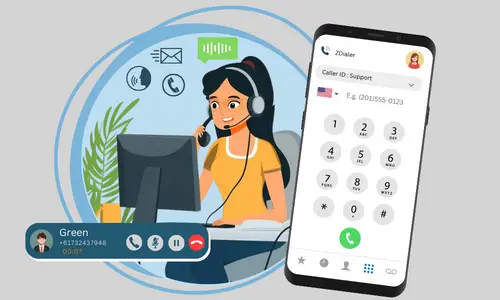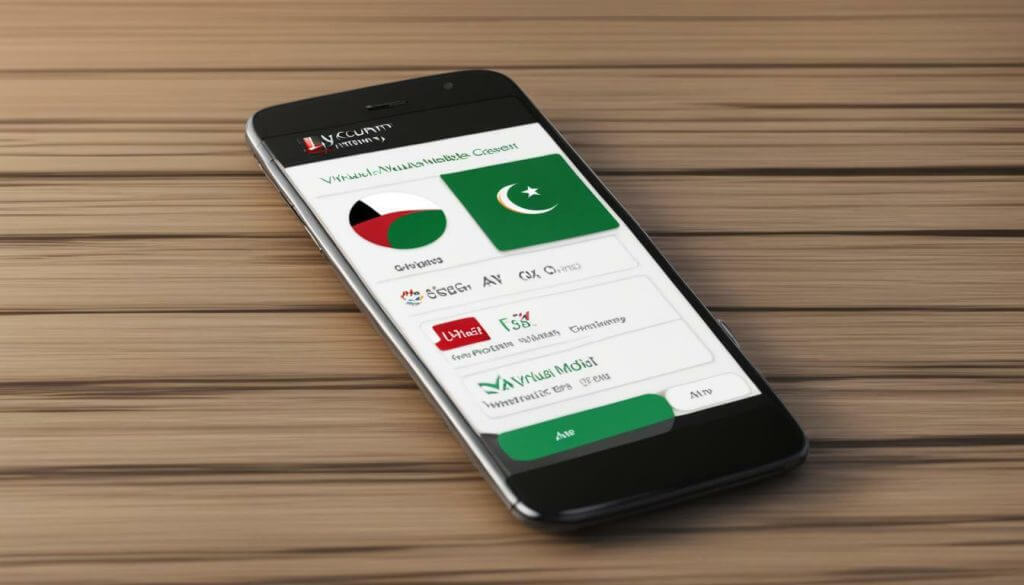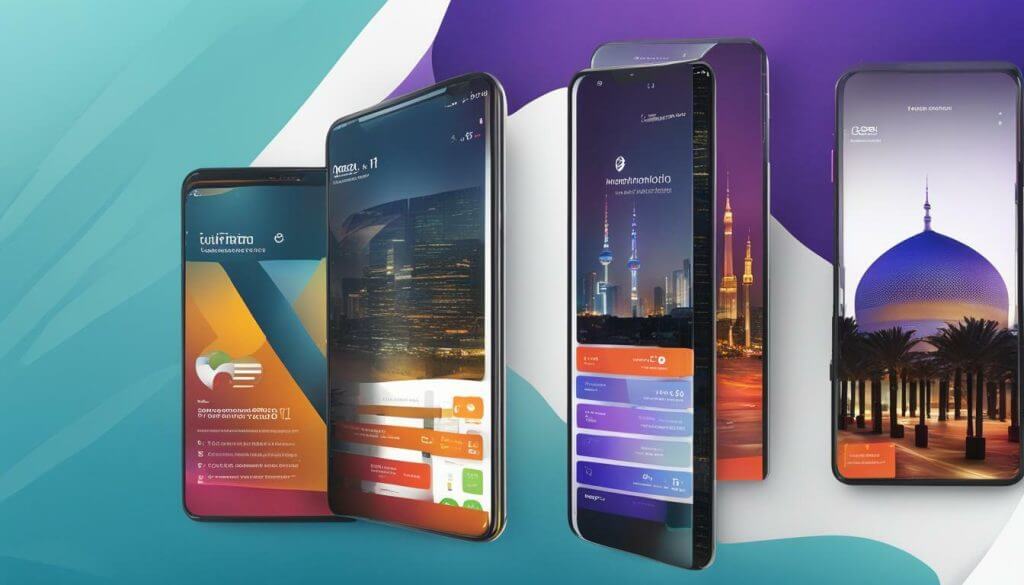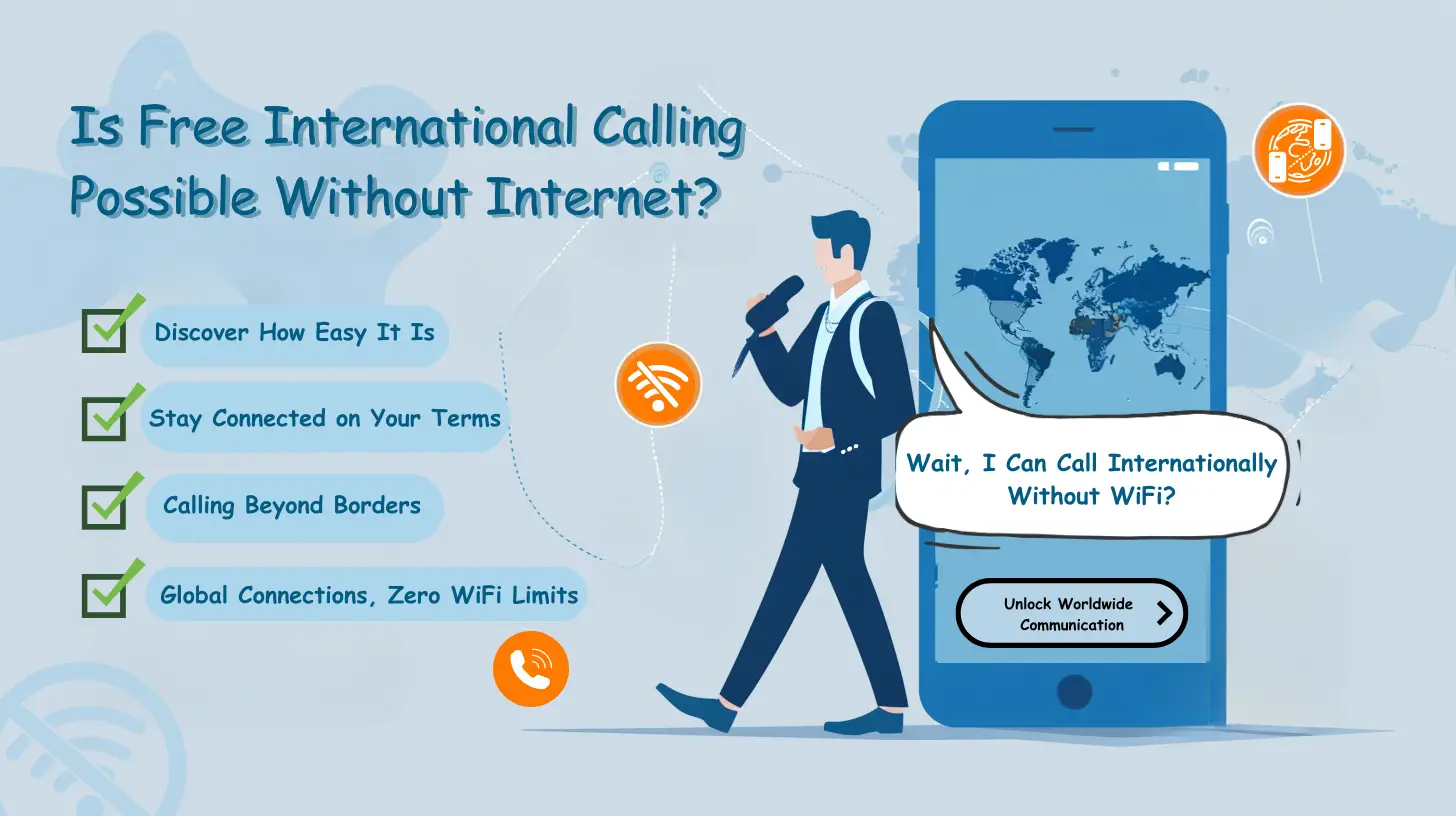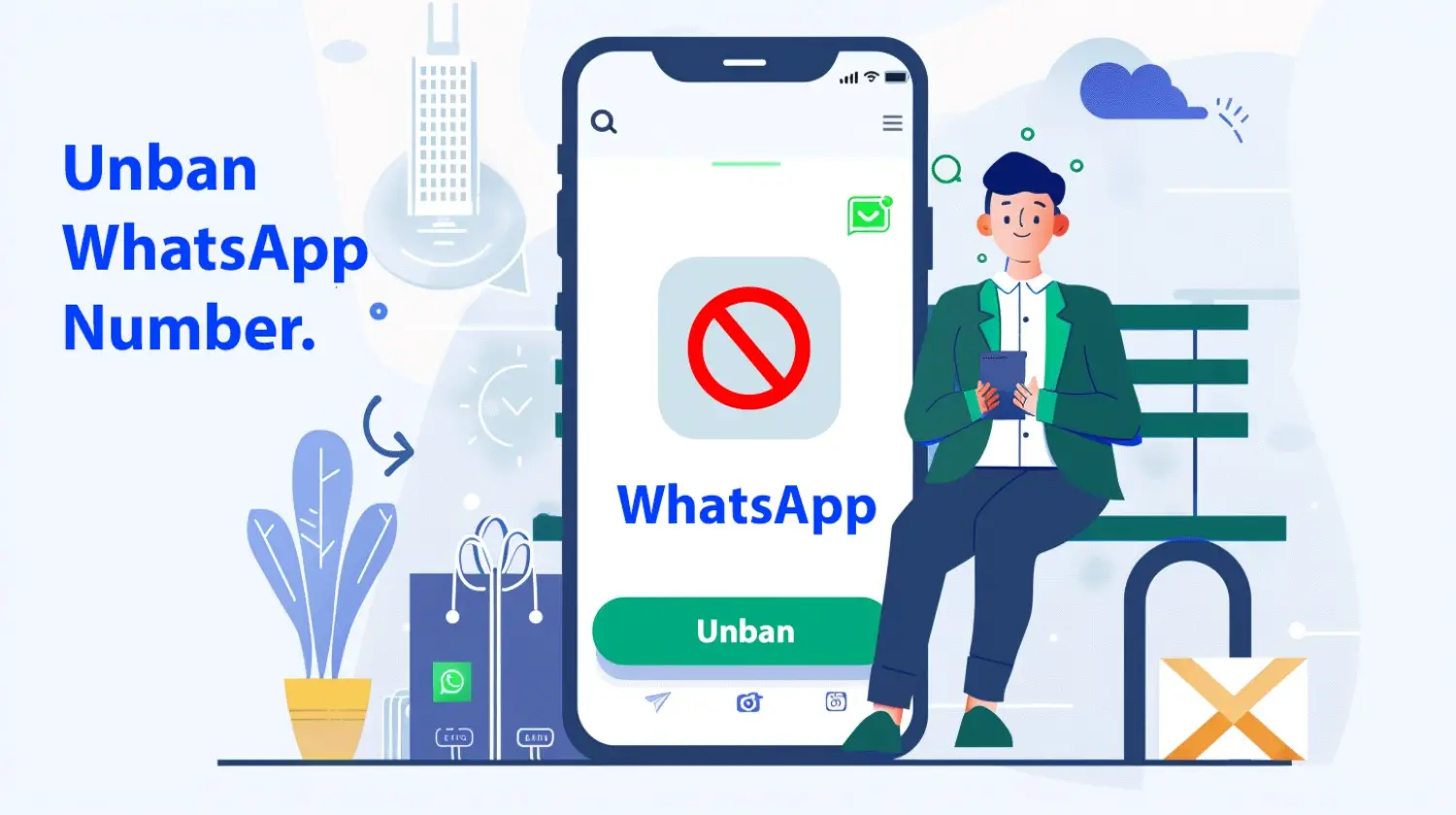Virtual Number Kuwait, Looking to expand your business in Kuwait? Get a virtual number in Kuwait today with My Country Mobile and experience secure and easy communication. My Country Mobile offers reliable virtual phone numbers in Kuwait, allowing businesses to establish a local presence and connect with customers effortlessly.
With My Country Mobile, you can get a virtual number in Kuwait that comes with advanced VoIP features at no extra cost. Forward calls to one or multiple devices from anywhere in the world, ensuring you never miss an important call. Configure call forwarding settings for Virtual Number Kuwait, and Virtual Number Kuwait, download their user-friendly apps and start connecting with customers seamlessly.
AVOXI, a trusted provider with over 7,000 global companies, offers competitive pricing based on your expected call volume. Virtual Number Kuwait, support direct routing in Kuwait, ensuring high call quality and reliability. In addition to virtual numbers, AVOXI offers a wide range of services including a communications platform, enterprise voice, and global SIP trunking.
CallHippo is another provider that offers powerful features for businesses looking to break into the Kuwait market. Virtual Number Kuwait, Their virtual phone numbers in Kuwait can be integrated with CRM systems, providing a comprehensive solution for managing customer communication. With instant activation and support for various social media applications, CallHippo is an excellent choice for businesses looking to enhance their Kuwait presence.
If you’re looking for a virtual number in Kuwait that allows you to establish a local presence and receive calls at the national call rate, Virtual Number Kuwait Fijovirtual is the ideal solution. Their virtual numbers can be associated with a foreign or national telephone, enabling you to receive calls in a different country. With the option to add a virtual PBX for additional features, Fijovirtual offers a comprehensive solution for businesses of all sizes.
Purchasing a virtual number in Kuwait is quick and easy, with no contracts or commitments. You can conveniently make your purchase online and activate your number in no time. With an online platform provided by My Country Mobile, managing your virtual number in Kuwait has never been easier.
Key Takeaways:
- Get a virtual number in Kuwait with My Country Mobile for secure and easy communication.
- AVOXI offers reliable Kuwait virtual phone numbers with advanced VoIP features at no extra cost.
- CallHippo provides powerful features and instant activation for businesses looking to break into the Kuwait market.
- Fijovirtual allows businesses to establish a local presence in Kuwait and receive calls at the national call rate.
- Purchasing a virtual number in Kuwait is easy and can be done online without any contracts or commitments.
Why Choose My Country Mobile for Your Virtual Number Kuwait?
My Country Mobile is a trusted provider that offers reliable virtual numbers in Kuwait, simplifying international communication for businesses of all sizes. With My Country Mobile, you can easily get your virtual number in Kuwait today, ensuring a secure and easy process. By choosing My Country Mobile, you gain access to a range of benefits and features that make managing your virtual number seamless and efficient.
Benefits of Virtual Number Kuwait
- Boost business operations: Having a virtual number in Kuwait allows you to establish a local presence and gain the trust of your Kuwaiti customers. It enables you to answer calls from anywhere in the world, enhancing your business reach and flexibility.
- Cost-effective: Virtual numbers in Kuwait are a cost-effective solution for international communication. They eliminate the need for expensive international calling rates and offer competitive pricing based on your Virtual Number Kuwait, expected call volume.
- Advanced features: My Country Mobile’s virtual numbers in Kuwait come with advanced VoIP features that enhance your communication capabilities. Virtual Number Kuwait, These features include call forwarding, call recording, IVR menus, and more, empowering you to provide excellent customer service.
By choosing My Country Mobile for your virtual number in Kuwait, you can take advantage of these benefits to streamline your business communication and achieve your goals.
Advanced Features of My Country Mobile’s Virtual Number Kuwait
My Country Mobile’s virtual number in Kuwait offers a range of advanced features that add value to your business communication. These features include:
| Feature | Description |
|---|---|
| Call forwarding | Redirect calls to one or multiple devices, ensuring you never miss an important call. |
| Call recording | Record all incoming and outgoing calls for quality assurance and training purposes. |
| IVR menus | Create interactive voice response menus to guide callers to the right department or information. |
| Voicemail to email | Receive voicemail messages directly in your email inbox for convenient access in Virtual Number Kuwait. |
Virtual Number Kuwait, These advanced features, combined with My Country Mobile’s reliable service, ensure that you have the tools you need to effectively communicate with your customers in Kuwait.
Virtual Number Kuwait, With My Country Mobile’s virtual numbers in Kuwait, you can easily establish a local presence and expand your business opportunities. The process of purchasing a virtual number is quick and easy, with no contracts required. Once you have your virtual number, you can conveniently manage call forwarding settings, download apps, and connect with your customers from anywhere in the world. My Country Mobile has received positive reviews from customers and is trusted by over 7,000 global companies. Virtual Number Kuwait, offers competitive pricing based on expected call volume and supports direct routing in Kuwait. In addition, My Country Mobile provides other services like a communications platform, enterprise voice, and global SIP trunking.
Benefits of Virtual Number Kuwait
Having a virtual number in Kuwait can significantly boost your business operations by providing seamless communication with customers and enhancing accessibility. With virtual numbers, you can establish a local presence in Kuwait without the need for a physical office. This allows you to expand your reach and connect with customers in Kuwait, building trust and credibility.
Virtual Number Kuwait, One of the key benefits of virtual numbers is the flexibility they offer. Virtual Number Kuwait You can easily forward calls to one or multiple devices, ensuring you never miss an important call, no matter where you are. This level of convenience enables you to stay connected with your customers and provide timely support, ultimately improving customer satisfaction and loyalty Virtual Number Kuwait.
Virtual Number Kuwait, Virtual numbers also come with advanced features that can further enhance your business operations. For example, you can set up call routing rules based on specific criteria, such as time of day or caller location. This ensures that calls are efficiently directed to the right department or team member, improving efficiency and reducing wait times for customers. Additionally, features like call recording and voicemail transcription provide valuable insights and documentation for quality assurance and training purposes Virtual Number Kuwait.
Boost Your Business with a Virtual Number in Kuwait
Overall, Virtual Number Kuwait Getting a virtual number in Kuwait through My Country Mobile offers numerous benefits that can help your business thrive. By establishing a local presence, enhancing communication, and leveraging advanced features, you can streamline your operations, provide exceptional customer service, and expand your reach in the Kuwait market.
| Provider | Features | Activation |
|---|---|---|
| AVOXI | Over 20 advanced VoIP features | Quick and easy |
| CallHippo | Powerful features and CRM integration | Instant activation |
| Fijovirtual | Establish local presence with virtual PBX | Online purchase with no contracts |
When it comes to choosing a provider for your virtual number in Kuwait, consider reputable options like AVOXI, CallHippo, and Fijovirtual. Each of these providers offers unique features and benefits to cater to different business needs. Whether you prioritize advanced VoIP features, CRM integration, or establishing a local presence, there is a provider that can meet your requirements.
Advanced Features of My Country Mobile’s Virtual Number Kuwait
Virtual Number Kuwait, My Country Mobile’s virtual number in Kuwait comes with over 20 advanced VoIP features, ensuring a comprehensive and efficient communication solution for businesses. These features are designed to enhance your business operations and improve customer satisfaction.
With My Country Mobile’s virtual number in Kuwait, you can enjoy features such as call recording, auto-attendant, call forwarding, and voicemail transcription. These features enable you to manage your calls effectively, ensure seamless communication, Virtual Number Kuwait and provide a professional image to your customers.
Key Features:
- Advanced call routing options for personalized call management
- Call analytics and reporting for better decision-making
- Integration with popular CRM systems for streamlined workflows
- Multiple device forwarding for flexible call handling
- Call queuing to handle high call volumes efficiently
Moreover, Virtual Number Kuwait. My Country Mobile’s virtual number in Kuwait offers international call forwarding, allowing you to forward calls to one or multiple devices from anywhere in the world. This feature ensures that you never miss a call, even when you’re on the move.
By leveraging My Country Mobile’s advanced VoIP features, you can optimize your business communications, improve customer service, and increase productivity. Virtual Number Kuwait, With a virtual number in Kuwait, you can establish a strong presence in the region and expand your business opportunities.
Experience the power of My Country Mobile’s virtual number in Kuwait and take your business to new heights. Get started today and enjoy seamless communication with your customers.
| VoIP Features | Benefits |
|---|---|
| Call recording | Monitor and analyze customer interactions for training and quality assurance purposes |
| Auto-attendant | Provide professional greetings and route calls to the appropriate department |
| Call forwarding | Never miss a call by forwarding it to your preferred device or team members |
| Voicemail transcription | Receive transcriptions of voicemail messages for quick and easy review |
With My Country Mobile’s virtual number in Kuwait, you can take advantage of these advanced features and provide a seamless communication experience for your business. Start reaping the benefits today!
Call Forwarding with Your Virtual Number Kuwait
With My Country Mobile’s virtual number in Kuwait, you can easily configure call forwarding settings to ensure calls are directed to the desired devices. Whether you’re in the office or on the go, this feature allows you to stay connected with your customers and never miss an important call. By forwarding calls to one or multiple devices, you can provide seamless communication and exceptional customer service.
Setting up call forwarding is simple and can be done through My Country Mobile’s user-friendly online platform. You have the flexibility to redirect calls to your mobile phone, landline, or any other device of your choice. This enables you to manage your business communications efficiently, regardless of your location.
My Country Mobile’s advanced call forwarding settings also allow you to customize your call routing strategy. You can set up time-based routing to automatically forward calls to different devices based on the time of day. This is especially useful if you have a global customer base or operate in different time zones. Additionally, you can implement advanced call forwarding features such as simultaneous ringing, sequential ringing, or even alternate routing options.
By leveraging My Country Mobile’s virtual number in Kuwait with call forwarding capabilities, you can enhance your business operations and ensure that you never miss an important call. Stay connected with your customers and take your business to new heights with the power of virtual communication.
AVOXI: Trusted Provider of Virtual Number Kuwait
AVOXI is a trusted provider of virtual numbers in Kuwait, offering competitive pricing, direct routing, and support for businesses of all sizes. With over 20 advanced VoIP features at no extra cost, AVOXI allows you to establish a virtual presence in Kuwait and connect with customers seamlessly.
When you purchase a virtual number in Kuwait from AVOXI, you gain access to a range of features and benefits. One of the key advantages is the ability to forward calls to one or multiple devices from anywhere in the world. This flexibility ensures that you never miss an important call, no matter where you are located. AVOXI also offers call forwarding settings that can be easily configured to suit your specific requirements.
AVOXI has received positive reviews from customers and is trusted by over 7,000 global companies Virtual Number Kuwait. Their competitive pricing is based on expected call volume, making it an affordable solution for businesses of all sizes. Additionally, AVOXI supports direct routing in Kuwait, ensuring reliable and high-quality connections for your virtual number.
| Benefits of AVOXI’s Virtual Number Kuwait |
|---|
| Establish a virtual presence in Kuwait |
| Forward calls to one or multiple devices |
| Customize call forwarding settings |
| Competitive pricing based on call volume |
| Supports direct routing in Kuwait |
Alongside virtual numbers, AVOXI offers a range of other services to meet your communication needs. These include a comprehensive communications platform, enterprise voice solutions, and global SIP trunking for enhanced connectivity.
CallHippo: Powerful Features for Kuwait Virtual Phone Numbers
Another top provider of Kuwait virtual phone numbers is CallHippo. They offer powerful features specifically designed to help businesses break into the Kuwait market. CallHippo’s virtual numbers come with integration options for CRM systems, allowing seamless management of customer interactions.
Virtual Number Kuwait, In addition to its feature-rich platform, CallHippo provides instant activation for virtual numbers in Kuwait. This means that you can start using your virtual number right away, without any delays. CallHippo also offers a free virtual number for a year, giving businesses the opportunity to experience their services firsthand.
CallHippo supports the use of virtual numbers for various social media applications as well. This allows businesses to establish a strong online presence and engage with customers on popular platforms.
Fijovirtual provides virtual numbers for Kuwait, allowing businesses to establish a local presence and receive calls at the national call rate. Their virtual numbers can be associated with a foreign or national telephone, enabling calls to be received in a different country.
Fijovirtual offers a basic service with the option to add a virtual PBX for additional features. With the virtual PBX, businesses can enjoy advanced call management capabilities, Virtual Number Kuwait such as IVR menus, call recording, and more.
Purchasing a virtual number in Kuwait is easy and can be done online without any contracts or commitments. Activation is quick, and once you have your virtual number, you can manage it easily through an online platform provided by the service provider.
CallHippo: Powerful Features for Kuwait Virtual Phone Numbers
CallHippo provides businesses with powerful features for Kuwait virtual phone numbers, allowing instant activation and seamless integration with CRM systems. With their user-friendly interface, businesses can easily manage their virtual numbers and customize settings to fit their specific needs. Whether you’re a small startup or a large enterprise, CallHippo offers scalable solutions that can grow with your business.
One of the standout features of CallHippo’s Kuwait virtual phone numbers is the ability to integrate with CRM systems. This integration allows businesses to streamline their communication process by syncing customer data and call logs in one centralized platform. With this valuable information at your fingertips, you can provide personalized service to your customers and track the effectiveness of your marketing campaigns.
Additionally, CallHippo offers instant activation of virtual numbers, allowing businesses to start connecting with customers right away. There is no need to wait for lengthy setup processes or hardware installations. CallHippo understands the importance of agility in today’s business landscape and provides a solution that enables businesses to be up and running in no time.
| Key Features of CallHippo’s Kuwait Virtual Phone Numbers: | |
|---|---|
| Instant activation and quick setup | |
| Seamless integration with CRM systems | |
| Scalable solutions for businesses of all sizes | |
| Flexible call forwarding and routing options | |
| Powerful analytics and reporting tools |
Virtual Number Kuwait Whether you’re looking to establish a local presence, expand your business in Kuwait, or improve your customer service capabilities, CallHippo’s Kuwait virtual phone numbers can help you achieve your goals. With their range of powerful features and ease of use, Virtual Number Kuwait it’s no wonder why businesses trust CallHippo as their virtual phone number provider.
Fijovirtual allows businesses to establish a local presence in Kuwait with their virtual number service, offering additional features through their virtual PBX. With their virtual numbers, businesses can receive calls at the national call rate, enhancing their credibility and making it easier for customers to connect. What sets Fijovirtual apart is their option to associate the virtual number with a foreign or national telephone, allowing calls to be received in a different country. This flexibility enables businesses to manage their operations from anywhere in the world while maintaining a local presence in Kuwait.
But the benefits don’t stop there. Fijovirtual also offers a virtual PBX, which provides additional features to enhance business communications. With their virtual PBX, businesses can enjoy features such as call routing, call recording, voicemail, and more. These features streamline communication processes, improve customer service, and ensure that no important calls are missed.
Purchasing a Kuwait virtual number with Fijovirtual is easy and hassle-free. The entire process can be completed online, without the need for any contracts or commitments. Once the virtual number is purchased, activation is quick, and businesses gain access to a user-friendly online platform for managing their virtual numbers. From configuring call forwarding settings to accessing call logs and analytics, the online platform provides businesses with full control and visibility over their virtual number in Kuwait.
| Key Features of Fijovirtual’s Kuwait Virtual Number |
|---|
| Establish a local presence in Kuwait |
| Receive calls at the national call rate |
| Associate the virtual number with a foreign or national telephone |
| Virtual PBX with advanced features |
| Quick and easy online purchase |
| No contracts or commitments |
Fijovirtual’s Kuwait virtual number service is an excellent choice for businesses looking to establish a local presence in Kuwait without the need for physical offices. With additional features provided through their virtual PBX, businesses can enhance their communication capabilities and deliver exceptional customer service. The easy online purchase process, quick activation, and user-friendly online platform make it convenient for businesses to get started with their Kuwait virtual number. Explore the benefits and features of Fijovirtual’s Kuwait virtual number service today.
Easy Online Purchase of Virtual Number Kuwait
Buying a virtual number in Kuwait is a hassle-free process that can be done online without any contracts or commitments. Virtual Number Kuwait, With My Country Mobile, you can easily obtain a virtual number in Kuwait through a secure and user-friendly online platform. Whether you are a small business owner or a global enterprise, My Country Mobile offers a seamless and streamlined experience for purchasing and managing virtual numbers in Kuwait.
By choosing My Country Mobile as your virtual number provider, you can enjoy the convenience of online purchasesVirtual Number Kuwait without the need for complex paperwork or long-term contracts. Simply visit our website, browse our range of virtual numbers in Kuwait, and select the one that suits your business needs. With just a few clicks, you can complete the purchase and gain instant access to your virtual number.
Our online platform also allows you to customize your virtual number settings, such as call forwarding preferences, voicemail, and advanced features. You have full control over your virtual number and can easily manage it to ensure seamless communication with your customers in Kuwait.
Why Choose My Country Mobile for Your Virtual Number Kuwait?
When it comes to virtual numbers in Kuwait, My Country Mobile stands out as a trusted provider with a wealth of experience in the telecommunications industry. As a market leader, we offer a wide range of benefits that make us the ideal choice for obtaining a virtual number in Kuwait:
- Reliability: Our virtual numbers are hosted on a robust and secure platform, ensuring uninterrupted communication with your customers in Kuwait.
- Flexibility: With My Country Mobile, you can easily forward calls to one or multiple devices, allowing you to manage your business communication from anywhere in the world.
- Advanced Features: We provide over 20 advanced VoIP features at no extra cost, empowering your business with enhanced call management capabilities.
- Competitive Pricing: Our pricing is based on expected call volume, ensuring that you only pay for the services you need. We offer cost-effective solutions for businesses of all sizes.
- Trusted by Global Companies: My Country Mobile has received positive reviews from customers worldwide and is trusted by over 7,000 global companies for their virtual number needs.
- Direct Routing in Kuwait: We support direct routing in Kuwait, allowing you to establish a local presence and connect with your customers in a seamless and efficient manner.
With My Country Mobile, you can trust that your virtual number in Kuwait is in safe hands. Our commitment to excellence and customer satisfaction sets us apart, making us the preferred choice for businesses seeking virtual numbers in Kuwait.
| Provider | Features | Activation |
|---|---|---|
| AVOXI | Over 20 advanced VoIP features | Quick and easy activation |
| CallHippo | Powerful features for businesses | Instant activation |
| Fijovirtual | Establish a local presence in Kuwait | Quick and easy activation |
Conclusion
Obtaining a virtual number in Kuwait has never been easier. With My Country Mobile, you can securely purchase your virtual number online, without any contracts or commitments. Virtual Number Kuwait Our user-friendly online platform allows you to customize your virtual number settings and enjoy a range of advanced features. Choose My Country Mobile as your virtual number provider and experience the convenience, reliability, and flexibility that our services offer. Join over 7,000 global companies who trust us for their virtual number needs and establish a strong presence in Kuwait today!
Once you purchase your virtual number in Kuwait, you can expect quick activation and access to an online platform for convenient management. With My Country Mobile, Virtual Number Kuwait obtaining a virtual number is a secure and easy process. My Country Mobile offers reliable virtual numbers in Kuwait, allowing businesses to establish a local presence and connect with customers in the country.
AVOXI is a trusted provider of virtual numbers in Kuwait, offering over 20 advanced VoIP features at no extra cost. Their virtual numbers allow for call forwarding to one or multiple devices from anywhere in the world. Configuring call forwarding settings and downloading AVOXI apps is simple and user-friendly. With positive reviews from customers and trusted by over 7,000 global companies Virtual Number Kuwait, AVOXI ensures a seamless experience for businesses looking to expand their operations in Kuwait.
Another provider to consider is CallHippo, which offers powerful features for businesses targeting the Kuwait market. Along with virtual phone numbers, CallHippo integrates with CRM systems and provides instant activation. They also support the use of virtual numbers for various social media applications. Virtual Number Kuwait For businesses looking to establish a local presence in Kuwait, Fijovirtual’s virtual numbers are an excellent option. These numbers allow for receiving calls at the national call rate and can be associated with a foreign or national telephone. Additional features can be added through Fijovirtual’s virtual PBX.
| Provider | Features |
|---|---|
| AVOXI | Over 20 advanced VoIP features, call forwarding, and direct routing in Kuwait |
| CallHippo | Powerful features, integration with CRM systems, instant activation |
| Fijovirtual | Establish local presence, receive calls at national call rate, virtual PBX |
Purchasing a virtual number in Kuwait is a hassle-free experience, with online platforms allowing for easy and contract-free transactions. Virtual Number Kuwait The activation process is quick, ensuring businesses can start connecting with customers immediately. Whether you choose AVOXI, CallHippo, or Fijovirtual, these providers offer reliable services and a range of additional features to enhance your business operations in Kuwait.
In addition to virtual numbers Virtual Number Kuwait, My Country Mobile provides a range of other services that cater to the communication needs of businesses. With our robust communications platform, you can streamline your business operations and enhance your customer interactions. Whether you need to make voice calls, send SMS messages, or host video conferences, our platform offers reliable and scalable solutions.
One of our standout services is global SIP trunking, Virtual Number Kuwait which allows businesses to connect their existing PBX systems to our network. This enables cost-effective and efficient communication across multiple locations, eliminating the need for traditional phone lines. With our global SIP trunking, you can enjoy crystal-clear voice quality and seamless connectivity, no matter where your business operates.
Benefits of My Country Mobile’s Communications Platform and Global SIP Trunking:
- Streamlined communication: Our platform offers a unified interface for all your communication needs, making it easier to manage and track your interactions.
- Cost savings: By leveraging global SIP trunking, you can significantly reduce your telecommunications expenses, especially for long-distance and international calls.
- Scalability: Our services are designed to grow with your business. You can easily add or remove features as your needs change, ensuring flexibility and adaptability.
- Reliability: With our advanced infrastructure and redundant network, you can rely on uninterrupted communication, even during peak times and high call volumes.
With My Country Mobile’s communications platform and global SIP trunking, you can take your business communication to the next level. Experience seamless connectivity, enhanced productivity, and cost savings like never before Virtual Number Kuwait.
Reviews and Trust of My Country Mobile
My Country Mobile has earned positive reviews from its customers and is trusted by over 7,000 global companies Virtual Number Kuwait, showcasing its reliability and customer satisfaction. With a track record of delivering top-notch virtual number services Virtual Number Kuwait, My Country Mobile has established itself as a reputable provider in the industry.
Customers praise My Country Mobile for its seamless and hassle-free process of obtaining virtual numbers in Kuwait. The secure and easy-to-use platform ensures that businesses can quickly acquire a local presence and enhance their communication capabilities.
Trusted by thousands of companies worldwide, My Country Mobile offers a wide range of advanced features to enhance business operations. From call forwarding settings to advanced VoIP features, businesses can customize their virtual numbers to meet their specific needs and achieve maximum efficiency.
Furthermore, My Country Mobile provides excellent customer support, ensuring that businesses receive prompt assistance and guidance whenever needed. Their team of experts is dedicated to delivering exceptional service and ensuring customer satisfaction.
| Key Features of My Country Mobile | Benefits |
|---|---|
| Secure and easy online purchase | Quick activation and management |
| Advanced VoIP features | Boosted business operations |
| Call forwarding settings | Enhanced communication capabilities |
| Competitive Pricing | Establish local presence |
| Direct routing in Kuwait | Flexible and scalable solutions |
In conclusion, My Country Mobile is a trusted provider of virtual numbers in Kuwait, offering secure and easy solutions for businesses seeking to establish a local presence. With its advanced features, competitive pricing, and excellent customer support, My Country Mobile stands out as a reliable choice for enhancing communication capabilities and boosting business operations.
Conclusion
Getting a virtual number in Kuwait through My Country Mobile offers secure and easy communication, helping businesses simplify international conversations and enhance their operations. AVOXI, a trusted provider, offers reliable Kuwait virtual phone numbers with over 20 advanced VoIP features at no extra cost. With AVOXI, you can forward calls to one or multiple devices from anywhere in the world. Once you purchase your Kuwait phone number, you can configure call forwarding settings, download AVOXI apps, and start connecting with customers.
AVOXI has received positive reviews from customers and is trusted by over 7,000 global companies. They offer competitive pricing based on expected call volume and support direct routing in Kuwait. In addition to virtual numbers, AVOXI provides other services like a communications platform, enterprise voice, and global SIP trunking.
Fijovirtual’s virtual number in Kuwait allows businesses to establish a local presence and receive calls at the national call rate. This virtual number can be associated with a foreign or national telephone, enabling calls to be received in a different country. Fijovirtual offers a basic service with the option to add a virtual PBX for additional features.
Buying a Kuwait virtual number is easy and can be done online without any contracts or commitments. Activation is quick, and users have access to an online platform for managing their virtual numbers. With My Country Mobile and its trusted partners like AVOXI, CallHippo, and Fijovirtual, businesses can take advantage of the benefits of virtual numbers in Kuwait and expand their global reach.

